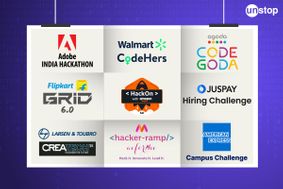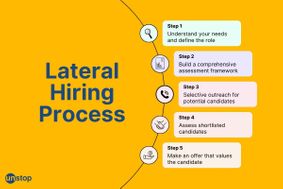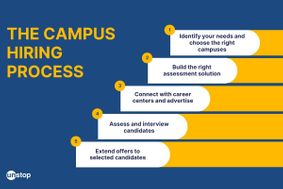- Sales Executive Job Description Template
- Sales Executive Roles & Responsibilities
- Essential Skills and Qualifications for Sales Executives
- Tips for Crafting an Effective Sales Executive Job Description
- Sales Executive Job Description Samples
- Frequently Asked Questions
- Business Analyst Job Description Template
- Overview of Business Analyst Role and Responsibilities
- Key Skills and Qualifications for Business Analysts
- Sample Job Descriptions for Business Analysts
- Tips to Write a Business Analyst Job Description
- Closing Thoughts
- Frequently Asked Questions (FAQs)
- Data Analyst Job Description Template
- Key Responsibilities of a Data Analyst
- Essential Skills & Qualifications for Data Analysts
- Data Analyst Job Description Samples
- Closing Thoughts
- Frequently Asked Questions (FAQs)
- Role of a Business Development Executive: Overview
- Business Development Executive Job Description Template
- BDE Roles & Responsibilities
- Key Requirements for a Business Development Executive
- BDE Job Description Samples
- Tips for Writing an Effective BDE Job Description
- Closing Thoughts
- Frequently Asked Questions (FAQs)
- Content Writer Job Description Template
- Understanding Content Writer's Role
- Skills and Qualifications of a Content Writer
- Sample Job Descriptions for Content Writer
- Quick Tips for Creating The Perfect Content Writer Job Description
- Closing Thoughts
- Frequently Asked Questions
- Accountant Job Description Template
- What’s the Role of an Accountant?
- Essential Skills and Abilities for Successful Accountants
- Education and Experience Requirements for Accountants
- Accountant Job Description Samples
- Closing Thoughts
- Frequently Asked Questions (FAQs)
- Understanding the Account Executive Role
- How is the role of an Account Executive different from other related roles?
- Writing an Effective Account Executive Job Description
- Sample Account Executive Job Description
- Final Remarks
- Frequently Asked Questions
- HR Recruiter Job Description Template
- HR Recruiter Role: Responsibilities, Skills & Qualification
- HR Recruiter Job Description Samples
- Closing Thoughts
- Frequently Asked Questions
- Marketing Executive: Responsibilities & Skills
- Template for Marketing Executive Job Description
- Marketing Executive Job Description Samples
- Tips to make marketing executive job description engaging
- Frequently Asked Questions
- HR Executive Key Responsibilities
- Skills and Requirements
- HR Executive vs HR Manager
- HR Executive Job Description Template
- HR Executive Job Description Samples
- Conclusion
- Frequently Asked Questions
- Role of HR Managers in 2024
- HR Manager Job Description Template
- HR Manager Responsibilities: Overview
- Essential Skills and Qualifications for HR Managers
- HR Manager Job Description Samples
- Final Remarks
- Frequently Asked Questions
- Assistant Manager Job Description: Responsibilities
- Assistant Manager Job Description: Required Skills and Qualifications
- Assistant Manager Job Description Template
- Samples for Assistant Manager Job Description
- Summing Up
- Frequently Asked Questions
- Project Coordinator Job Description: Duties, Skills & Qualifications
- Project Coordinator Job Description Template
- Project Coordinator Job Description Samples
- Final Remarks
- Frequently Asked Questions
- Sales Manager: Job Brief
- Sales Manager Job Description Template
- Key Responsibilities of a Sales Manager
- Essential Skills and Qualifications
- Sales Manager Job Description Samples
- Attracting and Hiring Top Sales Manager Talent
- Frequently Asked Questions
- Executive Assistant Job Description Overview
- Executive Assistant Job Description Template
- Executive Assistant Responsibilities
- Essential Skills and Qualifications for Executive Assistants
- Executive Assistant Job Description Samples
- Administrative vs Executive Assistant Roles
- Conclusion
- Frequently Asked Questions
- Job Overview for Sales Coordinator Position
- Sales Coordinator Job Description Template
- Sales Coordinator Roles and Responsibilities
- Administrative Support Provided by Sales Coordinators
- Sales Coordinator Skills & Qualifications
- Sales Coordinator Job Description Samples
- How to Use a Sales Coordinator Job Description Template
- Final Remarks
- Frequently Asked Questions
- Financial Analyst Job Description Overview
- Financial Analyst Job Description Template
- Financial Analyst Roles and Responsibilities
- Educational Requirements and Skills Needed
- Financial Analyst Job Description Samples
- Final Remarks
- Frequently Asked Questions
- Product Manager Job Description: Understanding the Role
- Template For Product Manager Job Description
- Product Manager Job Description Samples
- Summary
- Frequently Asked Questions
- Operations Executive Job Description: Understanding the Role
- Template for Operation Executive Job Description
- Operation Executive Job Description For Entry Level and Experienced Candidates
- Closing Thoughts
- Frequently Asked Questions
- Relationship Manager Job Role Overview
- Template For Effective Relationship Manager Job Description
- Relationship Manager Job Description Samples
- Summary
- Frequently Asked Questions
- What’s the Role of Office Administrator?
- Office Administrator Job Description Template
- Office Administrator Duties
- Essential Skills and Requirements
- Crafting an Office Administrator Job Description
- Office Administrative Job Description Samples
- Office Administrator Job Description: Sample 2
- Closing Thoughts
- Frequently Asked Questions
- Quality Analyst Job Description Template
- Quality Analyst: Responsibilities, Skills & Qualification
- Quality Analyst Job Description Samples
- Frequently Asked Questions
- Java Developer Job Description Template
- Java Developer Role: Responsibilities, Skills, Qualifications
- Java Developer Job Description Samples
- Summing up
- Accounts Payable: What Does It Do?
- Accounts Payable Job Description Template
- Skills and Qualifications For An AP Role
- Steps To Write An Accounts Payable Job Description
- Accounts Payable Job Description Samples
- Summary
- Frequently Asked Questions
- Role Overview
- HR Operations Manager Job Description Template
- Key Responsibilities
- Required Skills and Competencies
- Qualifications Needed
- Job Description: Things To Include
- HR Operations Manager Job Description Samples
- Closing Thoughts
- Frequently Asked Questions
Data Analyst Job Description Template For 2026 [Samples Included]
![Data Analyst Job Description Template For 2026 [Samples Included]](https://d8it4huxumps7.cloudfront.net/bites/wp-content/banners/2024/2/65cdc855d92d1_copy_of_blog_template__23_.jpg?d=1200x800)
A data analyst is responsible for collecting, organizing, and analyzing large sets of data to uncover insights and trends that can inform business decisions. Like any other job description, a data analyst job description should also state the required skills, qualifications, and experience required for the role. Ideally, the JD should also specify the certifications required, if any while listing competitive benefits.
By delving into the nuances of this profession, recruiters can better equip themselves to find the right candidates who can thrive in this competitive job market. Understanding a data analyst's core responsibilities and required skills is also essential for effectively identifying and attracting top talent in this dynamic field.
Let’s start with a template and dig deeper into the information needed to craft the perfect data analyst job description.
Data Analyst Job Description Template
The specific responsibilities of a data analyst can vary depending on the industry, company size, and team structure. However, the core focus remains on using their analytical skills, technical expertise, and communication abilities to unlock the power of data for better decision-making.
Here’s a data analyst job description template that can be customized for different industries:
Job Summary: We are seeking a highly motivated and skilled Data Analyst to join our team and help us unlock the power of our data. You will be responsible for collecting, cleaning, analyzing, and visualizing data to provide actionable insights that inform business decisions and drive growth. This role requires a strong analytical mind, technical skills, and the ability to communicate complex findings to both technical and non-technical audiences.
Responsibilities:
- Develop and implement data analysis plans to answer specific business questions.
- Collect, clean, and manage data from various sources, ensuring accuracy and integrity.
- Perform statistical analysis using relevant tools and techniques.
- Identify trends, patterns, and insights from data sets.
- Develop and maintain data visualizations, dashboards, and reports.
- Present findings to stakeholders in a clear, concise, and compelling manner.
- Stay up-to-date with the latest data analysis tools and techniques.
- Collaborate with cross-functional teams to translate data insights into actionable strategies.
- May involve building and maintaining data pipelines and automation scripts.
Qualifications:
- Bachelor's degree in Data Science, Statistics, Computer Science, or related field.
- Minimum of [Number] years of experience as a Data Analyst or similar role.
- Strong proficiency in SQL and data manipulation tools (e.g., Pandas, NumPy).
- Experience with data visualization tools (e.g., Tableau, Power BI).
- Excellent analytical and problem-solving skills.
- Strong communication and presentation skills.
- Ability to work independently and as part of a team.
Benefits:
- Competitive salary and benefits package.
- Opportunity to work on challenging and impactful projects.
- Collaborative and supportive work environment.
- Continuous learning and development opportunities.
To Apply: Please submit your resume and cover letter to [Email address].
Recruiters can include an ‘About Us’ or ‘Company Culture’ section to add more information about the organization and attract top talent.

Key Responsibilities of a Data Analyst
A data analyst wears many hats, but their core responsibilities revolve around transforming raw data into meaningful insights that can inform business decisions. Here's a breakdown of their typical responsibilities:
Data Acquisition and Preparation:
- Collecting data: Sourcing data from various internal and external sources, including databases, surveys, logs, and APIs.
- Cleaning and pre-processing data: Identifying and correcting data inconsistencies, errors, and missing values to ensure accuracy and completeness.
- Transforming data: Manipulating data using tools like pandas and SQL to structure it for analysis.
Data Analysis and Modeling:
- Exploratory data analysis (EDA): Analyzing data to understand its distribution, patterns, and relationships between variables.
- Statistical analysis: Applying statistical methods and tools to identify trends, correlations, and significant differences.
- Modeling: Building predictive models using techniques like regression and machine learning to forecast future outcomes.
Data Visualization and Communication:
- Creating visualizations: Designing charts, graphs, and dashboards to communicate data insights clearly and effectively to technical and non-technical audiences.
- Report generation: Writing reports summarizing findings, interpretations, and recommendations based on data analysis.
- Presenting insights: Presenting findings to stakeholders in a clear, concise, and compelling manner, tailoring. For example, data analysts might sift through customer data to determine preferences or study sales figures to pinpoint growth opportunities.
Additional Responsibilities:
- Database Management: Creating and maintaining databases to securely store information. This ensures that data is organized efficiently and can be easily retrieved when needed. For instance, a data analyst may structure databases to store financial records or track inventory levels accurately.
- Staying updated: Keeping up with the latest data analysis tools, techniques, and industry trends.
- Collaboration: Working with cross-functional teams to translate data insights into actionable strategies.
- Automation: Depending on the role, developing and maintaining data pipelines and automation scripts to streamline data processing.
If you’re looking to hire for this role, post your data analyst job description on Unstop.
Essential Skills & Qualifications for Data Analysts
Proficiency in Programming Languages
Aspiring data analysts should be proficient in programming languages such as Python or R to manipulate and analyze large datasets efficiently. These technical skills are crucial for extracting valuable insights from complex data sets. For example, using Python, analysts can clean messy data and perform advanced statistical analysis.
Analytical Mindset
Analysts need strong analytical and problem-solving skills to interpret data accurately. By utilizing statistics, they can identify trends and patterns within the available data, providing meaningful conclusions. Having a keen eye for detail ensures the accuracy of their analysis results.
Communication and Presentation Abilities
Effective communication skills are essential for data analysts to convey their findings clearly to stakeholders. They must be able to translate complex technical information into layman's terms for better understanding. Moreover, excellent presentation abilities help them create visually appealing reports or presentations that highlight key insights from the analyzed data.
Another key aspect of a data analyst’s role is the ability to work effectively within cross-functional teams.
Education and Degrees
To become a data analyst, candidates typically need a bachelor's or master's degree in a related field such as statistics, mathematics, computer science, or economics. These degrees provide the necessary foundation for understanding complex data sets and statistical analysis techniques.
Equally important is proven experience with data analysis tools such as Tableau and Excel and statistical analysis techniques to interpret large datasets effectively. They use this knowledge to identify trends, patterns, and relationships within the data they analyze. Proficiency in statistical tools like Python, R, or SQL (CHECK TOOLS) is crucial for performing these analyses accurately.
Continuous Learning
The industry evolves rapidly with new technologies and methodologies emerging frequently. Thus, data analysts must stay updated with the latest industry trends to remain competitive in their field. By attending workshops, taking online courses, or participating in conferences related to data analytics, professionals can enhance their skills and stay current with industry advancements.
Looking to hire data analysts with the right skill set? Explore the aptitude, technical and communication skill tests, among other assessment tools on Unstop, and find the right fit for your organization.
Data Analyst Job Description Samples
Entry-Level Data Analyst Job Description Sample 1
Do you have a passion for data and a desire to make a real impact in the tech industry? We're searching for a motivated and detail-oriented Entry-Level Data Analyst to join our growing team. In this role, you'll leverage your data analysis skills and technical expertise to unlock valuable insights from our software development processes, contributing directly to our company's success.
What You'll Do:
- Design and maintain data sets to capture key metrics and performance indicators related to software development activities.
- Mine data from both primary (internal databases, logs) and secondary sources (industry reports, market trends).
- Clean and prepare data for analysis, ensuring accuracy and completeness.
- Utilize statistical tools and techniques to identify patterns, trends, and correlations in data sets.
- Develop visualizations (dashboards, reports) to effectively communicate data insights to stakeholders (developers, management).
- Support the development and implementation of data-driven strategies to improve software development efficiency and performance.
- Assist with automating data collection and analysis workflows where applicable.
- Stay current with emerging data analysis tools and techniques.
What We're Looking For:
While prior experience is not required, having some knowledge or exposure to data analysis concepts would be beneficial. It's important that you have a knack for problem-solving and can pay close attention to details. This is because accuracy is key when working with data – even the smallest mistake can lead to big problems down the line. Please see the list below for required and essential skills:
- Bachelor's degree in Computer Science, Data Science, Statistics, or related field (required).
- 0-1 years of experience in a data analysis or similar role (preferred).
- Proficiency in SQL and data manipulation tools (e.g., Pandas, Excel).
- Experience with data visualization tools like Power BI or Tableau (preferred).
- Strong analytical and problem-solving skills.
- Excellent communication and presentation skills.
- Ability to work independently and as part of a team.
- Passion for learning and staying up-to-date with new technologies.
What We Offer:
- Competitive salary and benefits package.
- Opportunity to work on challenging and impactful projects at a growing tech company.
- Collaborative and supportive work environment.
- Continuous learning and development opportunities.
- Be part of a team that values data-driven decision-making.
Ready to join our team?
If you're someone who loves diving into numbers and unraveling their stories, this role could be a perfect fit for you. Apply now at [application portal link] to take the first step towards an exciting career in data analysis!
Entry-Level Data Analyst Job Description Sample 2
Are you passionate about sports and have a meticulous eye for detail?
We're searching for a driven and detail-oriented Data Control Specialist to join our growing team. In this exciting role, you'll play a crucial role in ensuring the accuracy, consistency, and completeness of our sports data, contributing directly to the quality of our reporting and analysis.
What You'll Do:
- Become the guardian of data accuracy: Meticulously review and validate data entries from various sources, ensuring they are accurate, consistent, and complete.
- Act as a data detective: Identify and rectify any data discrepancies through regular reviews, as well as input any new information into the system accurately.
- Stay in the game: Keep yourself informed about sports events, players, teams, and industry trends to enhance the accuracy and relevance of the data you manage.
- Teamwork makes the dream work: Collaborate closely with fellow data analysts and researchers and identify opportunities to streamline data control processes.
- Document like a champion: Maintain clear and comprehensive documentation of data control processes, promoting transparency and consistency.
What We're Looking For:
- A Bachelor's degree, with strong academic performance demonstrating your commitment to excellence (all fields except B.Tech or B.E. welcome).
- Openness to a hybrid work model and rotational shifts.
- Familiarity with database management systems (preferred)
- Excellent communication skills, conveying information clearly and concisely both verbally and in writing.
- Strong analytical skills and a keen eye for detail, spotting errors and discrepancies with lightning speed, is ideal.
What We Offer:
- The opportunity to make a real impact: Your work will directly contribute to the quality and accuracy of our sports data, informing valuable insights and analysis.
- A dynamic and collaborative work environment: Join a team of passionate individuals who share your dedication to data excellence.
- Professional development opportunities: Grow your skills and knowledge through training and mentorship programs.
- A competitive salary and benefits package: We recognize and reward your contributions.
To apply, please submit your resume and cover letter to [email address].
Closing Thoughts
In conclusion, a data analyst's role is multifaceted, requiring a blend of technical skills, analytical thinking, and effective communication. When creating a job description for a data analyst position, it is essential to highlight the need for technical skills, analytical thinking, and strong communication abilities.
Emphasizing the importance of experience with data analysis tools and techniques, as well as the ability to interpret and present findings effectively, will attract qualified candidates. Additionally, including details about the company's specific data needs and goals will help candidates understand the role's significance within the organization.
Frequently Asked Questions (FAQs)
1. What is a data analyst job description?
A data analyst job description outlines the responsibilities, qualifications, and skills required for the role. It typically includes analyzing data, interpreting results, creating reports, identifying trends, and collaborating with teams to improve data quality.
2. What are the key responsibilities of a data analyst?
Key responsibilities of a data analyst include collecting and interpreting complex data sets, analyzing results using statistical techniques, developing reports and visualizations to present findings, identifying patterns and trends in datasets, and collaborating with teams to implement improvements based on insights.
3. What essential skills should a data analyst possess?
Essential skills for a data analyst include proficiency in programming languages like Python or R, strong analytical abilities to interpret complex datasets effectively, knowledge of statistical methods and tools for analysis such as SQL or Excel, and excellent communication skills to convey findings clearly.
4. What qualifications and training are required for becoming a data analyst?
Typical qualifications for a data analyst role include a bachelor's degree in statistics, mathematics, computer science, or related fields. Additional certifications in areas like machine learning or big data analytics can be beneficial. Training programs focusing on analytical tools are also valuable.
You might also be interested in these:
- Business Analyst Job Description Template & Samples For 2024
- Sales Executive Job Description: Get Template, Samples & Top Tips
- Employee Grievance: Understanding Types, Causes & Solutions
- Quizzes For Assessment Of Candidates for Upskilling, Promotion, & Hiring
- Employee Skill Gap Analysis: What Is It & How To Conduct It?
I’m a reader first and a writer second, constantly diving into the world of content. If I’m not writing or reading, I like watching movies and dreaming of a life by the beach.
Login to continue reading
And access exclusive content, personalized recommendations, and career-boosting opportunities.
Subscribe
to our newsletter
Blogs you need to hog!

Organize Hackathons: The Ultimate Playbook With Past Case Studies

What is Campus Recruitment? How To Tap The Untapped Talent?

Lateral Hiring: A Complete Guide To The Process, Its Benefits, Challenges & Best Practices













Comments
Add comment